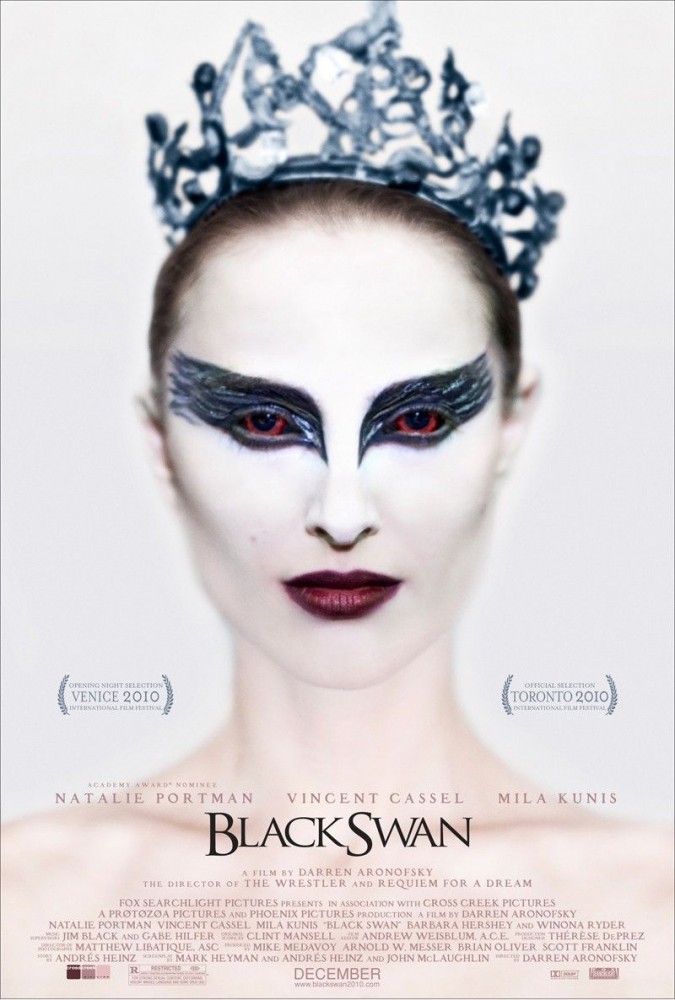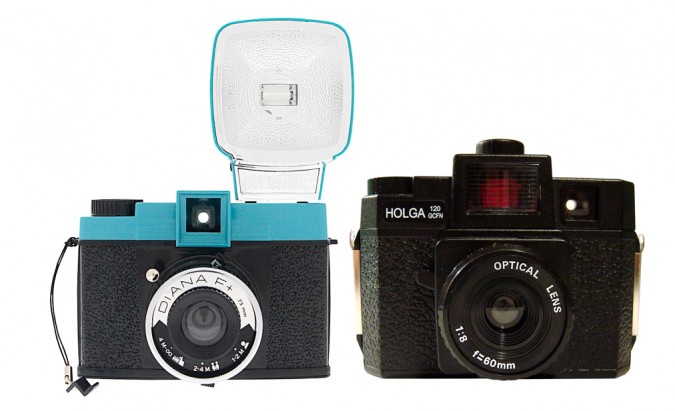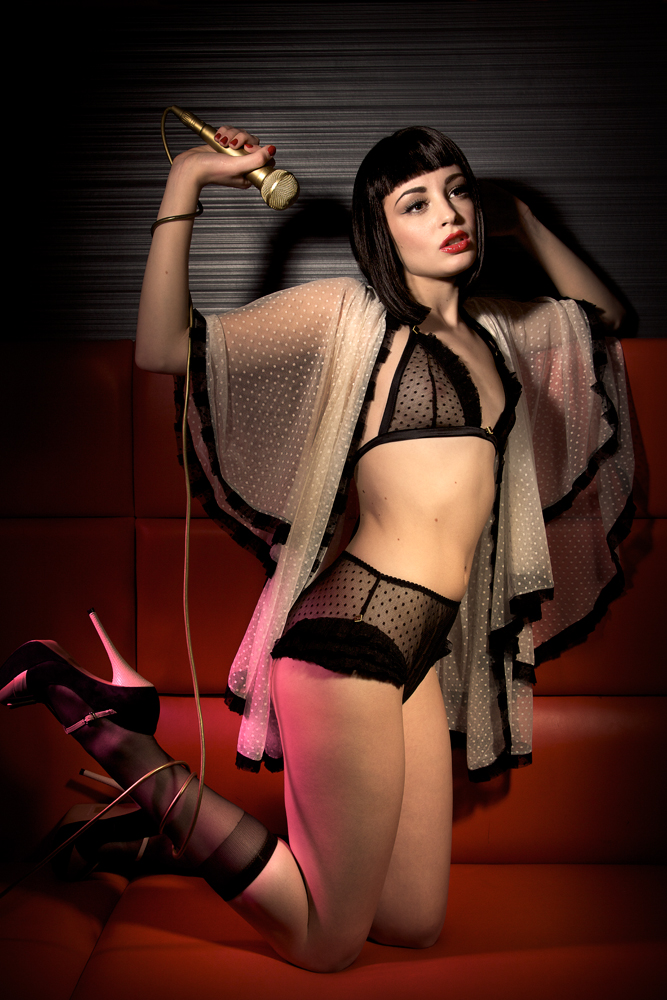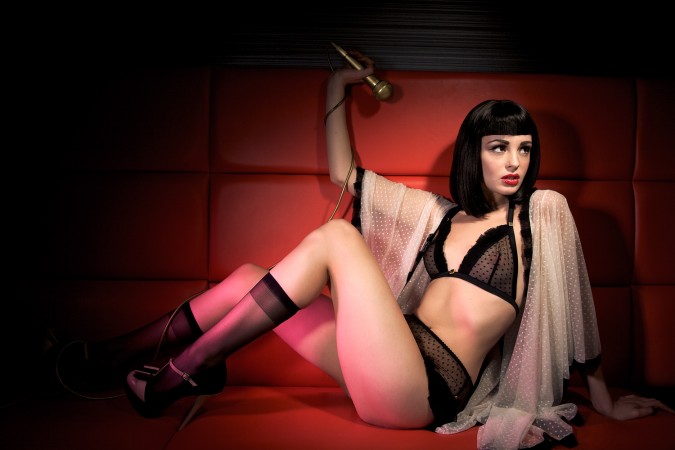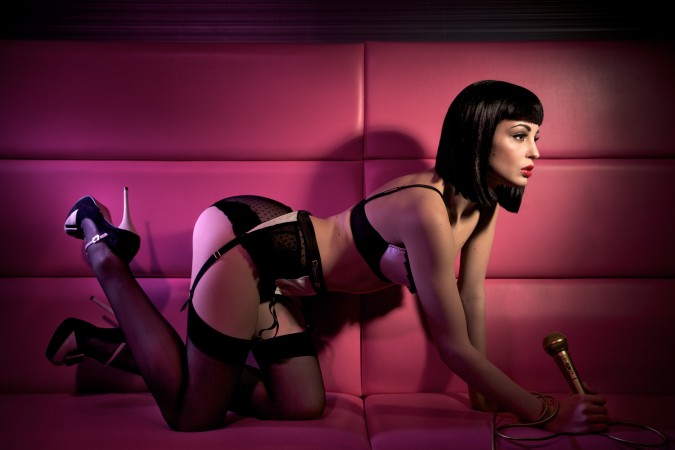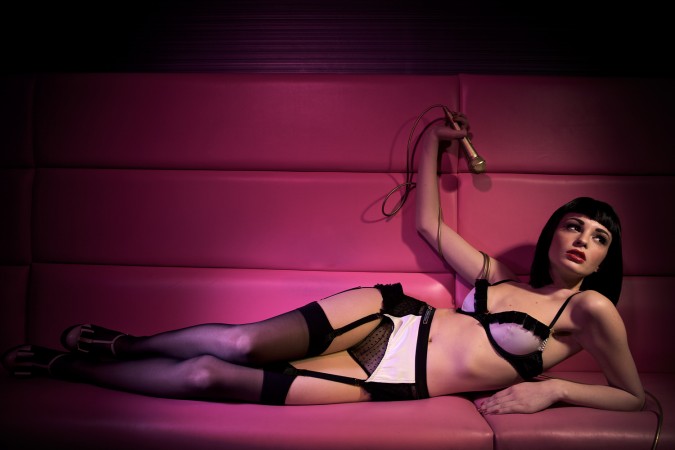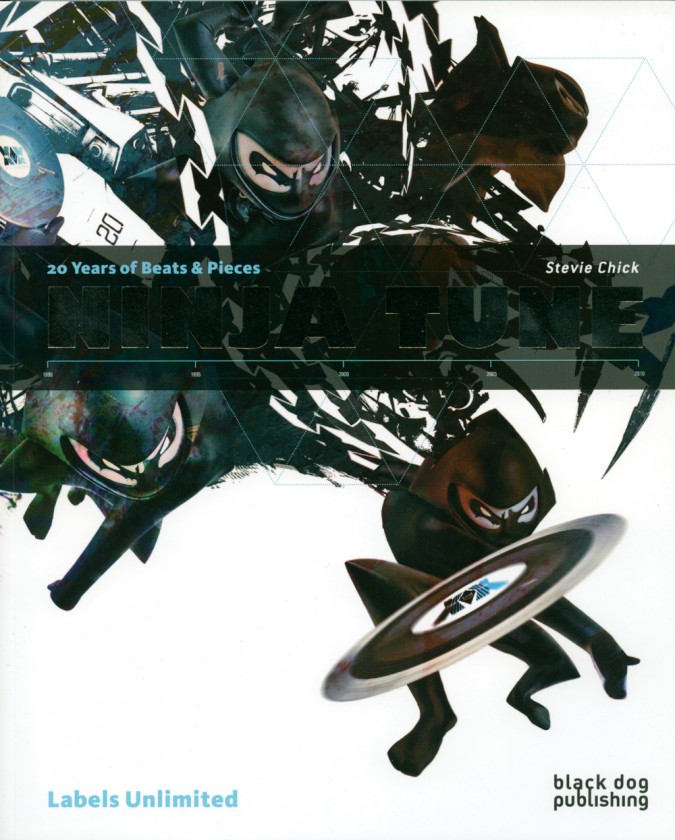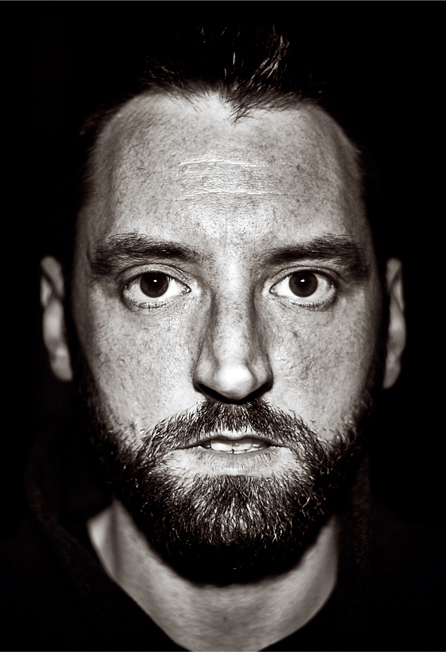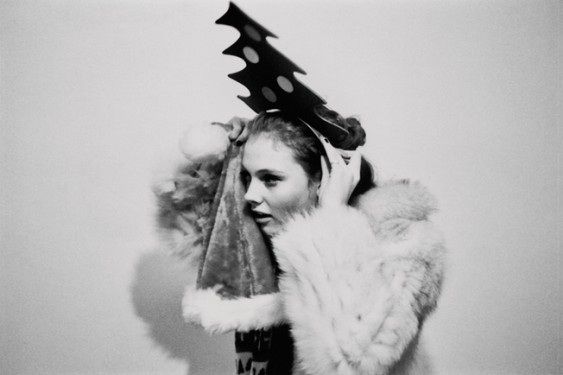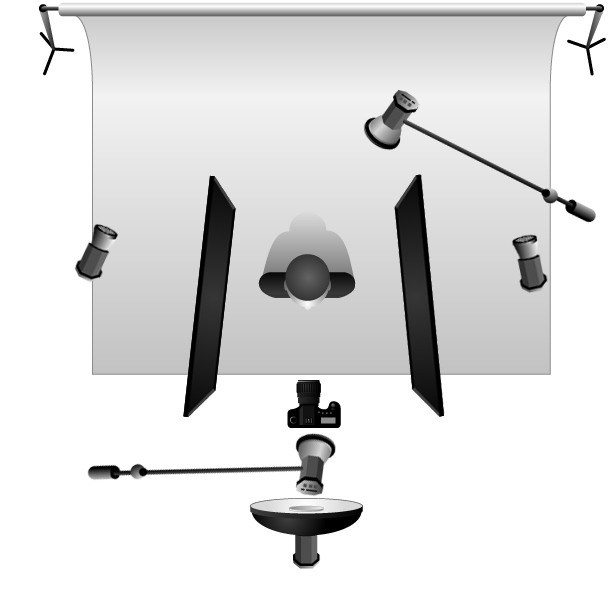I just came across the work of Alyssa Boni in January’s Photo Pro Magazine, and had to show it to you. The image posted below is a combination of Studio Photography and large Scale perspective drawing. Kevin and Matt worked on some similar themes to this on Source covers a few years back, but nowhere to this level, this work is so strong, and although it is a finished piece it just makes me very eager to bring something Fashion based into a series like this. Its a brilliant series and so perfectly and precisely executed. There is much more on the website linked above- brilliant job Alyssa.
Blog
Films for Photographers 2010.
We are looking for recommendations for the films of 2010, but films that either grabbed your attention due to the photographic elements, or for looking at the role of the Director/DOP and interesting editing, use of structure and visual language to tell a story.
Photography, as we know is about considering the elements within the frame, what to cut-out, what to include, the lighting the subject and its context, the questions it ask of the viewer, the perspective of the photographer; did you see a film this year that really got you thinking about any of these elements or maybe you saw a re-issue or remastered film in the cinema that offered so much more than when viewed on the TV at home. If so we would love to hear from you and we will try and get a list of Ones To Watch for next week. Please try and make sure that there is something of real interest to the photographer inside you though- we don’t want hundreds of recommendations for The Expendables, unless you can convince us that the Lighting crew really did good work showing Stallone in his prime….. Oh and whilst we urge you all to keep your cinemas alive, especially the local independents such as our great Duke Of Yorks you can include downloaded films but remember the visual quality is often not as good as the Director intended.
Hopefully no accidental spoilers……
To start you off we have two of our most recent favourites,
The Killer Inside Me: This is a difficult film to recommend, and may risk alienating a large percentage of our readers, as this film is incredibly brutal and hard to watch, at times its sustained and unflinchingly levels of violence become so disturbing that I couldn’t actually look at the screen. I consider myself fairly unshockable when it comes to movies, and indeed this film confronts that assertion- violence, particularly screen violence has a long history of being milked for shock affect, or for comedic or even heroic purposes. Michael Winterbottom certainly raises this issue again- how successful this is, or how this misogynistic stance can be reconciled will be debated for a long time to come. As a photographer though this film stands out in two very key areas, the first is of course the portrayal of the female in photography and that of roles/roleplay and stereotypes, often mythical stereotypes of both sexes. The second area in which the film has received a great deal of deserved praise is the incredible cinematography. Marcel Zyskind who has worked with Winterbottom before, excels as a DoP and creates a film that is both beautiful and rich. This is a film that should be approached with some caution- it is not a film that you will come away ‘liking’, its dark and disturbing portrayal of a man losing his mind, surround by odious characters- this does not stop it being brilliant in many parts of its execution.
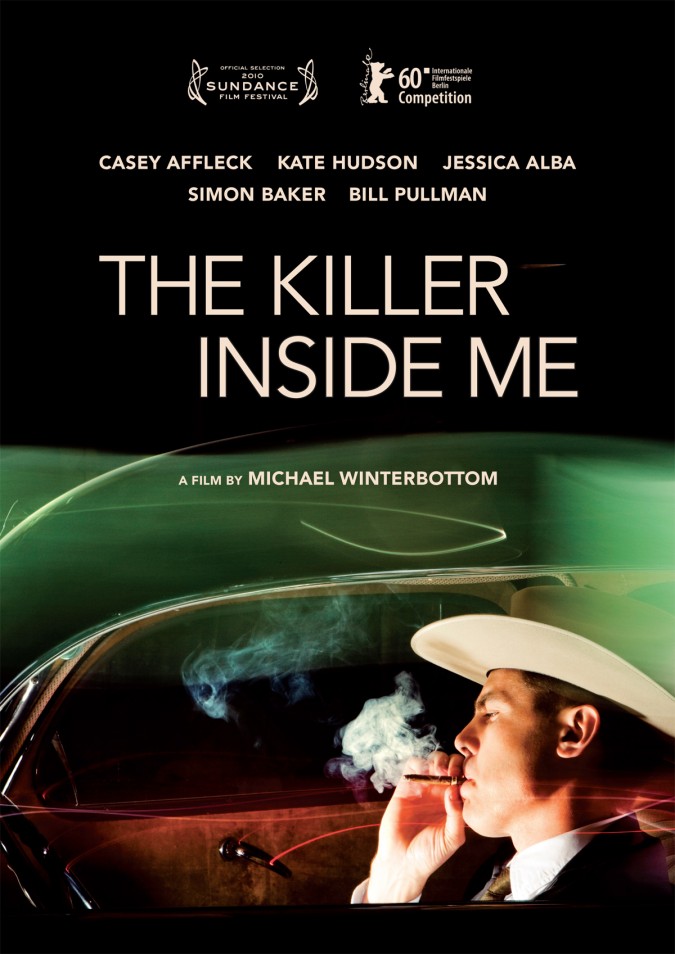
The second film that really grabbed our attention was the Darren Aronofsky directed Black Swan. In his debut film Pi, Aronofsky created an intense paranoid world, and used suitably strong cinematography, shooting in Black and White despite the obvious costs, overexposing deliberately to further enhance the frame, a use of a very claustrophobic set and using almost a digital/binary sense of photography even though it was shot in in 1997/8 and on a miniscule budget.
In Black Swan, Aronosfsky again teams up with pi DoP Matthew Libatique and creates an intense, hypnotic world, where fiction and reality cross planes many times. Although the majority of this film was shot on traditional film stock, a large part was also shot on 3 Canon cameras, the 7D, the 5Dmk11 and the 1DMarkIV, with Libatique abandoning the use of a focus puller and shooting on at 24mm lens at 1600iso. As a lot of the film takes place in a Ballet school its also a masterclass in use of, and avoidance of, reflection in the 360 mirrored rooms. A second very strong and beguiling aspect of this film, is the use of the Director of The Ballet School. Vincent Cassels character encompasses a number of facets of the Photographer, the power to manipulate, provoke and control his subject for the ‘greater good’ of the production or in our terms the ‘photograph’, it reminded me very much of some of the latter day interviews I have seen with portrait master Richard Avedon.
So there we are two great films that you should have seen, or make time to see and that hold a lot of interest for Photographers- but we would love to know any other recommendations, lets try and stick to the 2010 give or take a few months, (some films may not yet have a UK release date) and we will try and put everything into a blog post for next week. Feel free to add into the comments below or mail us
Heres to a good 2011 in film,
Kev.
Did you get a new camera this holiday?
Are you looking for a course to understand your new Diana or Holga Camera, at Garage Studios we offer the only UK course dedicated to those quirky but well loved Plastic cameras. Discover how to get the best out of your new camera- or dust off the one in the cupboard and come and join our enthusiastic tutor who will guide you through and inspire you to take great images that you’ll be proud of. Both are humble and simple cameras but its important to understand the basics, the quirks, and the common errors of each model and you will soon be shooting with wild abandon- confident that this little plastic fiend can handle everything you put in front of it.
Discover the fun and amazing results you can get from film photography. The course includes two films to get you started, and a photowalk around Brighton and runs for approx 5 hours, with a price of £75. This course will leave you inspired and excited, but also will save you some money on costly film processing as we get you past the early ‘mistakes’ most new Holga/Diana users make. The next dates are Sunday 30th January and Sunday 20th Feb, and you can book direct on our paypal page, or mail us
If you want some inspiration then check out this group of great Diana images on flickr- and then come and join us for a course.
Closed for the Holidays..
We are now shut for the Holidays, as we are a small team and need a little break to. However your bookings and enquiries are important to us and we will be replying to any mails as usual, though there may be a small delay. All phone calls will go to answerphone though so we ask that you just mail with any query, and one of the team will get back to you.
If you have ordered vouchers from us please note that we have sent everything out by by post so hopefully they will have already arrived.
Have a great holiday if you are celebrating it, and we will be back with you soon.
The Garage Team.
Thanks for your support in 2010.
All of us here at Garage Studios would like to thank you for your support in 2010- it really has been a great year with many highlights- not just in terms of shoots, but courses, workshops, exhibitions.
Some of our real high points have been shows from both Matt Martin and Kevin Mason, guest workshops from LA based portrait photographer Lou O’Bedlam, shoots with some great bands, workshops with Colleges and Schools, a talk at Brighton Uni, several new courses, and most importantly of all we have had a record number of new students through the Garage doors.
Its always difficult in ‘tough economic times’ ( to quote Alan Sugar), but we are very thankful that our reliance on quality teaching and courses that teach students in a unique and we hope, inspiring way has lead to a superb second year of business. We will be offering some new courses next year- that reflect our growing base of in-house expertise but also to cater for students that studied with us some time ago and want to really push their skills and experience. Garage is also still in discussion with Noah Kalina to come and teach some workshops and give a guest talk and things look promising for both parties as long as we can find some free dates early next year.
Thanks also to the numerous interns that have come not just from Brighton, but all over the UK, and even recently Markus from Stuttgart, who have helped us in the day to day running of the studio, retouching and general shoots. We are actively seeking more interns for 2011, and we have a number of applicants, if you are interested please contact
So if you have bought a voucher, been on a course, commissioned us for shoots or even recommended us to a friend or client we really appreciate the support and thanks for keeping a local business going. We love being part of the vibrant creative scene in Brighton, and the hub for photography in this town and look forward to working with or teaching more of you next year.
Many Thanks, and Merry Christmas,
Beth, Kevin, Matt and Natasha, plus all the other members of our team.
Ophelia Fancy Promo shoot- New Collection
We are pleased to announce that we can finally show you the Ophelia Fancy promo images that we shot for their new collection. When Stevi and Emma talked about the new designs we could see that it needed a different approach- something very stripped back and less props than previous shoots. The girls had been thinking in the same area as well as it would focus more on the designs, and the ‘feel’ of being Ophelia Fancy and fit the new direction the brand is taking.
We sourced a few locations- but ultimately Kevin had his heart set on a Karaoke booth setting, with the aim of utilising the vibrant leather look booths as a simple but striking backdrop, and bringing in a vintage microphone as the only prop. The Ophelia girls changed this idea to a Disco era microphone which they spray painted gold- a much better idea, and far less cliched.
With this simple prop, a long gold cable, and a killer location we set to work. The rooms at Nine Rooms are perfect, but quite small for a lot of lighting kit, so we lit all this with at most 4 grid Bowens 500W running off of two travel paks. As all the lighting is very direct we have also gelled several of the lights to either fit in, or play off against the background of the set.
Lighting Assistants Natasha Alipour-Faridani and Markus Milcke.
We had to work quickly and managed to wrap the whole shoot including loading and unloading in less than 4 hours, which considering the space we had to work in, we were pretty happy with, the benefit of having details locked down before getting on location.
The theme for the Hair/Make-Up was a very clear nod to Uma Thurman in Pulp Fiction and the wig was cut and Styled by Ricardo at Square Roots. The make-up brief was perfectly fufilled by Bebe Newson, who made brighton model Tess look sensational here.
If you need promo images, fashion editorial or lookbook shoots then please get in touch as we have a very easy rate system that can accomodate most budgets.
15% DISCOUNT ON ALL VOUCHERS BOUGHT TODAY!
If Christmas shopping is becoming a nightmare, and you are beginning to think that you’ll never be able to live up to all those good intentions you had at the beginning of the month of finding fabulously thoughtful gifts, we have a one day only offer to solve all your worries.
Buy a Garage Studios gift voucher today and until 7pm Friday 16th Dec 2010, and get an amazing 15% off the cost. Whether you’d like to put some money towards photography training, or you want to splash out and buy someone you love the gift of a full course or worksop, simply contact us to tell us how we can help, then click on this link to make a payment and we’ll do the rest. We’ll post your voucher the next day by recorded delivery so you have it in perfect time to wrap up for Christmas!
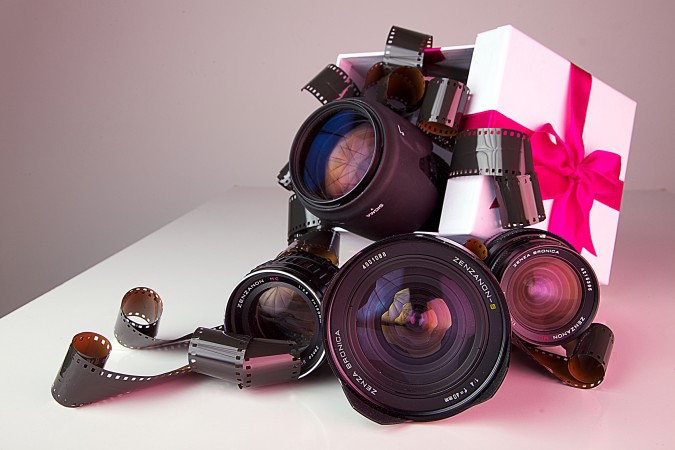
For more information on all the fantastic courses we offer, check out the blog post below or visit the courses page on our website. From flash workshops to light up your shots, to portraiture courses that show you how to take beautiful arresting images of people, we have courses to suit everyone with a passion for photography.
To purchase a voucher call on or email before 7pm on Friday 16th Dec 2010. .
Ninja Tune Book
This lovely new book arrived in the post today- Ninja Tune: 20 Years of Beats and Pieces. We shot Ninja Tune artist Fink a while back for Brighton Source Magazine, and the label contacted us to include the image in Finks Section.
The book is really well put together, as you would expect from a label like Ninja Tune, who put artistry above turning a quick buck. It includes some great outtake images on the renowned Roots Manuva and Wiley album covers, key insights into design aesthetic and some brilliant artwork.
The roster of artists includes,
Bonobo, Mr Scruff, Kid Koala, Dj Vadim, Roots Manuva, The Qemists, Fink and more….
It is published by Black Dog Publishing and costs just under £20- and is written by music journalist Stevie Chick, author of Spray Paint the Walls:The Black Flag Story.
We are very proud to be involved with this book and to work with such an inspiring independent label.
Christmas Gifts
In the last couple of weeks before Christmas, the panic may have set in a little. There’s always a couple of people that try as you might to find the perfect gift, you never quite seem to find what you are looking for.
For those of you on the look out for a unique and exciting gift that will inspire creativity in the New Year, help is at hand! We have range of training courses to tempt any photographic palette, from helping you get to grips with your new camera and portraiture courses that will teach you how to capture the spirit of your subject, to fashion editorial and 1-2-1 training. Whatever their interest or level of experience we have a course to match. Take a look at just some of the options below or visit the courses page on our website.
PORTRAITURE COURSE
This fantastic course is open to people of all abilities and aimed at those who wish to understand the principles involved in creating a captivating and absorbing portrait, from the key principles of portraiture to engaging with your subject, to lighting techniques. The course is run for 3 consecutive Wednesday evenings and costs £155.
FLASH: IMPROVE YOUR LIGHTING
This course will help you understand flash lighting, teaching all the professional techniques and skills you need to create perfectly lit images in any situation. The course course is run either as an intensive one day session costing £155 or as 4 sessions held one a week costing £195.
HOLGA AND DIANA EXCLUSIVE CHRISTMAS GIFT OFFER
Learn to love your quirky plastic camera, and create atmospheric images in a weekend workshop with Garage Studios. Buy your camera and course together and get a 10% discount on your camera and 20% discount on the cost of the course. The perfect gift for al those with a flair for creativity!
10% DISCOUNT ON ANY TWO COURSES BOOKED TOGETHER
If you really can’t decide between them all, or if you’d like to buy a gift for you and someone else to enjoy together, book more than one course at the same time, we’ll thank you by giving you a 10% discount on the total cost. For any course booked for someone else, we’ll also send you out a gift voucher so you have something to wrap up!
If you would like any more information on any of these courses, you have a question you would like to ask, or if you would like to book a place, email or call us on and we’ll do everything we can to help.
Band Promo Shoot
Garage Studios was recently approached by Rob, the trumpet player in the shots below, to shoot his various bands who play at clubs, functions and various events. He wanted some fresh new imagery for his Funk band Oomph and his Jazz band The Jazz for a new website that is under construction- you can find contact details here whilst the site is under further construction.
We decided against the standard band set-up and shot each band member seperately with and without instruments, and with styling tweaks by Stevi Jelbart of Ophelia Fancy, with the intention of a wide composite shot.
The lighting set up will be added below both finished shots.
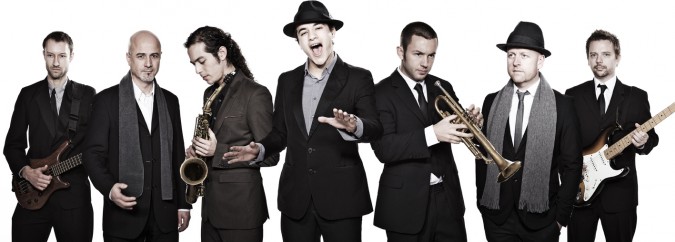
The second set-up of the four hour shoot was for the Jazz Band. Rob again needed something that was fairly fresh- but would immediately tell his potential clients exactly what music and instruments they played- so we went for a very classic Jazz look with some hopefully interesting composition.
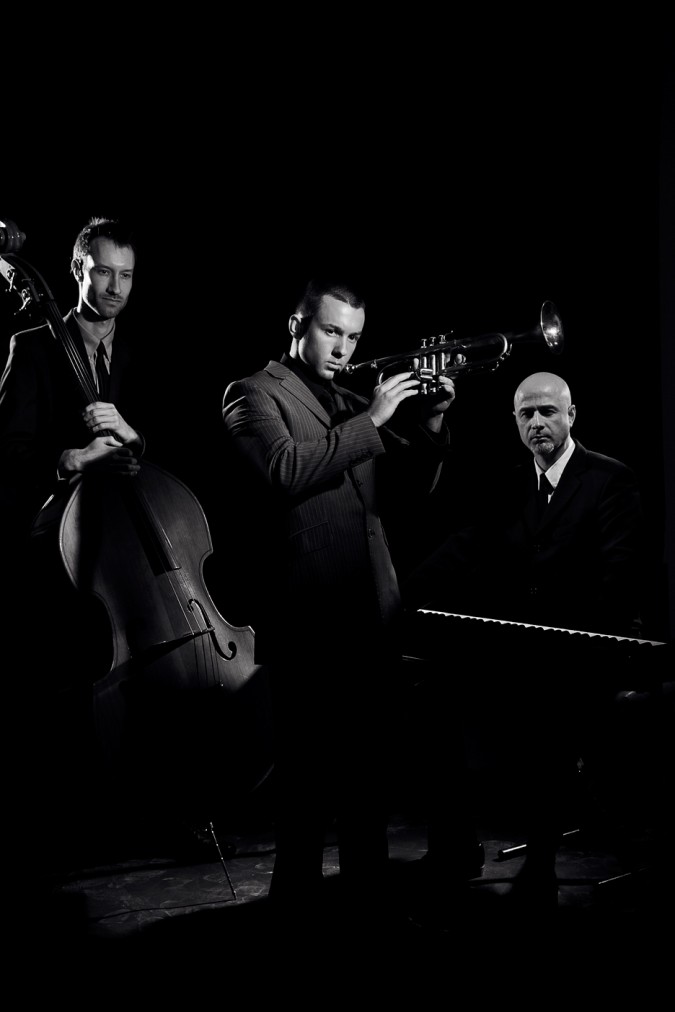
The incredibly dope Keyboard player.
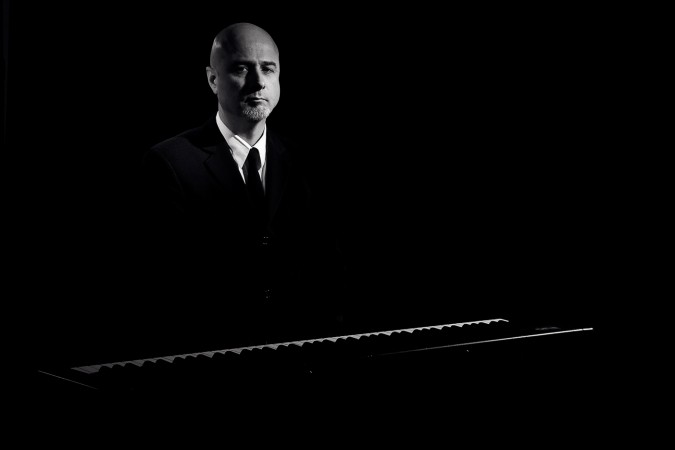
A 7 piece band, with portraits, and a Jazz Trio with portraits, styled and shot and out the studio in under 3 hours, (it took the best part of an hour for the bands kit to turn up), and we are all pretty happy with the result. If you are out in Brighton over the festive period its likely you may see one of these bands, they are great, very tight and really know how to keep an audience in thrall.

